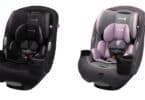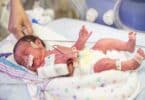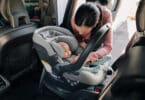 Every so often this issue gets some press, but I am not sure that the vast population believes there is a problem. Most baby bottles on the market, such as Avent, Dr. Brown’s, Evenflo, Gerber and Playtex, are made from the hard, clear, shatterproof plastic – called polycarbonate.
Every so often this issue gets some press, but I am not sure that the vast population believes there is a problem. Most baby bottles on the market, such as Avent, Dr. Brown’s, Evenflo, Gerber and Playtex, are made from the hard, clear, shatterproof plastic – called polycarbonate.
Co-authors Denise Fields and pediatrician Ari Brown of book “Baby 411” are telling parents to stop using polycarbonate plastic baby bottles that contain the controversial chemical bisphenol-A, or BPA.
The concern is that when bottles are heated or repeatedly washed, BPA can leach out and end up in breast milk or formula.
In animal studies, the chemical has been shown to mimic the natural female sex hormone estradiol, affecting the reproductive system. Other research linked low doses – not high doses, as incorrectly stated in “Baby 411” – to chromosomal abnormalities in mice. BPA may also have a role in cancers, impaired immune function, early puberty, obesity and diabetes.
Whether BPA, also found in epoxy coatings in canned food, can hurt the development of a human fetus or a baby is still unclear. In March, the National Institutes of Health/National Toxicology Program assigned an independent panel to evaluate the dangers the chemical might pose to reproductive health.
But some complained the draft report was riddled with errors and had an industry bias because it was prepared by Sciences International, a private consulting firm with close ties to the chemical industry, and has been funded by more than 50 industrial companies.
The NIH fired Sciences International, citing potential conflicts of interest, and an in-house staff prepared a second draft for the federal Center for the Evaluation of Risks to Human Reproduction.
One concern is that a study that is funded by the industry being researched cannot be seen as legitimate.
Meantime, if you want to keep using plastic bottles or “sippy” cups, the new “Baby 411” advises limiting the number of times you boil those bottles or put them in a dishwasher, skipping the “heated dry” dishwashing cycle and buying new bottles every time you have a new baby.
Related Articles:
*the bottle shown is called a Biosphenol free bottle*






